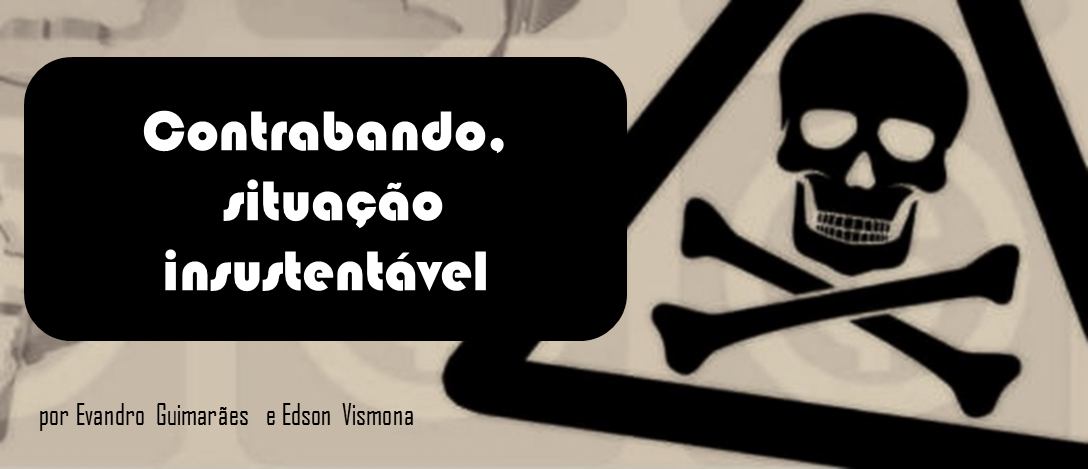Read article published in Folha de São Paulo, about the State Day to Combat Smuggling

Smuggling, unsustainable situation
by Evandro Guimarães and Edson Vismona *
This Friday (1/7), in a joint initiative of the Brazilian Institute of Competition Ethics (ETCO) and the National Forum Against Piracy and Illegality (FNCP), the State of São Paulo gains a date that encourages deep reflection: the Day State to Combat Smuggling.
Smuggling from Paraguay has two causes: the weakness of inspection at Brazilian borders and the brutal difference in prices between Brazilian legal and illegal Paraguayan products.
In relation to borders, the new federal government management has already become aware of the problem by determining the creation of a committee formed by several ministries to coordinate the actions of departments that work in this area.
This is undoubtedly an important front in the fight against smuggling. There are already several actions underway to structure a way of working and to fight criminal factions, in line with the report of the Federal Court of Accounts (TCU) which points out several opportunities for efficiency and, mainly, governance for solving this problem.
However, the fight against smuggling is not limited to making logistical access difficult. The origin of the transit of illegal products has strong economic reasons - the difference in taxes between the two countries and the recent increases in taxes determined by the government.
Take the example of the smuggling champion, the Paraguayan cigarettes. With the increase of the IPI (tax on industrialized products) by 110% in the last four years, illegal trade increased by 50% in the same period, causing, only in 2015, the legal production to fall 13% and the tax evasion caused the loss estimated R $ 4,9 billion in revenue.
The social effects are also perverse: these products do not undergo any phytosanitary control, do not carry health warnings on their packaging, are sold freely to minors and encourage crime.
The fiscal measure can be positive in reducing consumption as long as its increases do not cause consumers to migrate to illegality, as the World Health Organization guides. Proof of this is that the legal cigarette market fell 8%, and the illegal has grown 9% in the last four years.
In the case of the State of São Paulo, considering all taxes levied along the tobacco chain, the tax burden on the local product reaches 83%. It is not possible for the national industry to compete with Paraguayan cigarettes. Public managers need to understand this and act quickly, defining a tax model, albeit high, but more rational.
The substantial increase in taxes pushes the consumer and commerce into illegality, without this implying a reduction in consumption and a decrease in consumers who only migrate to Paraguay's products.
It is essential that the authorities create measures that allow fair and controlled competition for the survival of the legal industry.
Police reinforcement at borders, awareness campaigns and tax analyzes are measures without which the war on smuggling is a lost cause beforehand.
(*)
EDSON VIMONA he is president of FNCP - National Forum against Piracy and Illegality. He was Secretary of Justice and Defense of Citizenship of the State of São Paulo (2000/2002)
EVANDRO GUIMARÃES he is the executive president of ETCO - Brazilian Institute of Ethics in Competition. He was Vice President of Institutional Relations at Rede Globo



